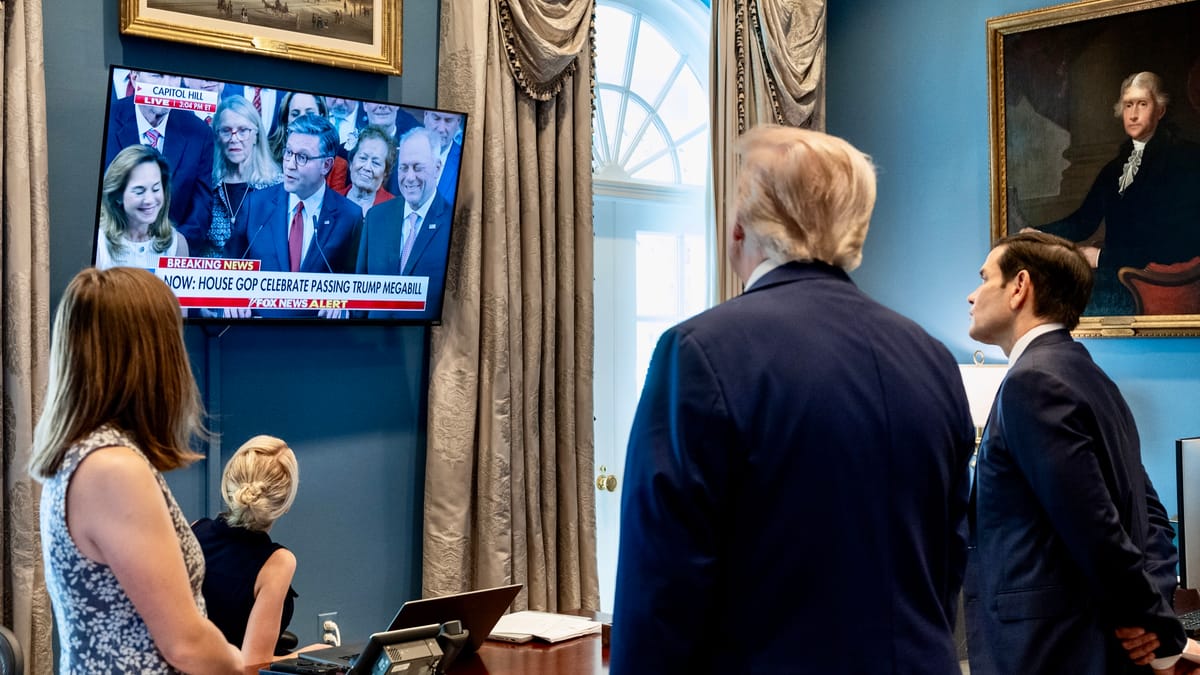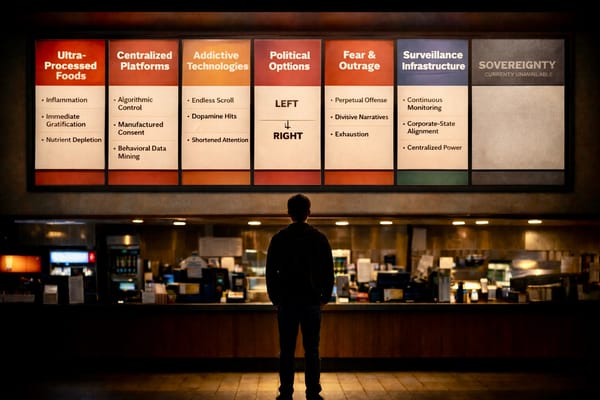House Delivers Trump’s “One Big Beautiful Bill” To His Desk After Marathon Session
218-214 vote sends bill to President before July 4th deadline

The U.S. House of Representatives approved former President Trump’s flagship domestic agenda—the “One Big Beautiful Bill”—by a 218–214 margin Thursday afternoon. With that vote, Congress has sent sweeping tax cuts, energy policy shifts, immigration enforcement and Medicaid reductions to President Trump’s desk.
Passage of the bill required Speaker Mike Johnson to orchestrate a marathon operation, keeping procedural votes open for more than nine hours to win over wavering Republicans. Legislators huddled in the White House into the wee hours Wednesday night. Trump himself took part, holding a phone call with holdouts around 1 a.m., while White House Budget Director Russ Vought toured the Capitol to push for support. Johnson even paused to pray with skeptical Republicans just before the 3:30 a.m. vote to open debate—moments later, he snapped a photo of supporters celebrating on the floor.
House Minority Leader Hakeem Jeffries mounted a last-ditch effort to stall the bill’s passage by delivering a record-breaking floor speech that lasted 8 hours and 44 minutes. Beginning just before 5 a.m. and stretching into the early afternoon, Jeffries used his time to highlight what he called the bill’s “cruel and callous” cuts to Medicaid and social programs, share personal stories from constituents, and criticize Republicans for allowing only one hour of formal debate on the massive measure. His speech broke the previous record set by then-Minority Leader Kevin McCarthy in 2021. “If Republicans won’t allow a real debate on the floor,” Jeffries said, “then I’ll take the time myself to make sure the American people know exactly what’s at stake.” The extended remarks delayed final passage of the bill and signaled Democrats’ intent to use the legislation as a campaign weapon in the upcoming midterms.
Jeffries’ tactics—which amounted to a de facto filibuster—resulted in numerous calls to Speaker Johnson to cut Jeffries off, along with reminders that the House, unlike the Senate, does not allow the filibuster.
Ultimately, only two Republicans—Reps. Thomas Massie and Brian Fitzpatrick—joined every Democrat in opposing the bill. Massie cited concerns about exploding deficits fueling inflation and rising interest rates. Fitzpatrick said the Senate’s tougher Medicaid cuts crossed a line for his swing‑district constituents.
The bill is a cornerstone of Trump’s second‑term vision, and includes:
- Permanent extensions of the 2017 tax cuts, expanded SALT deductions, and tax exemptions for Social Security and overtime earnings
- A $150 billion package each for border security and defense spending, with a boost for shipbuilding and the “Golden Dome” missile project
- Reduced incentives for clean energy and greater output for oil, coal and gas .
- Must‑carry conditions on the debt ceiling, adding roughly $5 trillion to borrowing space and avoiding a default
- Deep cuts to Medicaid, SNAP and other welfare programs—expected to strip health insurance from millions—only partially offset by tax revenues .
The Congressional Budget Office projects the legislation will swell the deficit by $3.3 trillion over 10 years.
Republicans hail today’s vote as a historic win. Johnson called it “a key cornerstone of America’s new golden age.” Meanwhile, Democrats fiercely attacked it as a “reverse Robin Hood” that transfers wealth upward at the expense of vulnerable Americans .
President Trump is expected to sign the bill as early as July 4. However, Democrats intend to use the bill as a weapon in the upcoming elections, and discontent among fiscally-conscious Republicans over continued excessive spending will undoubtedly shape the remainder of this Congress.




